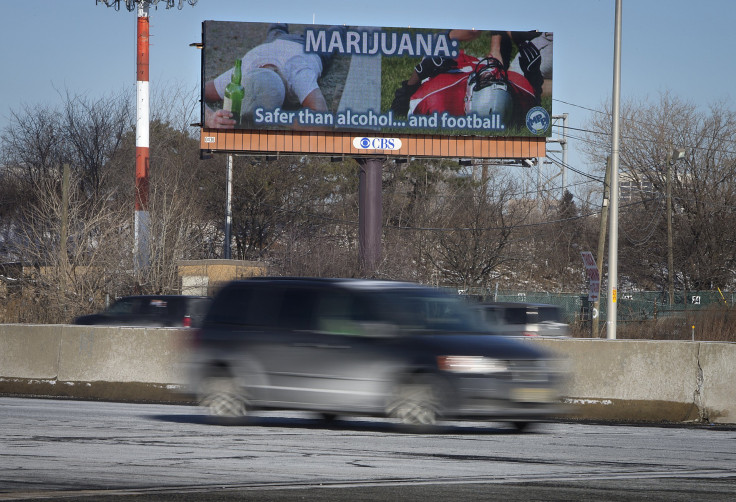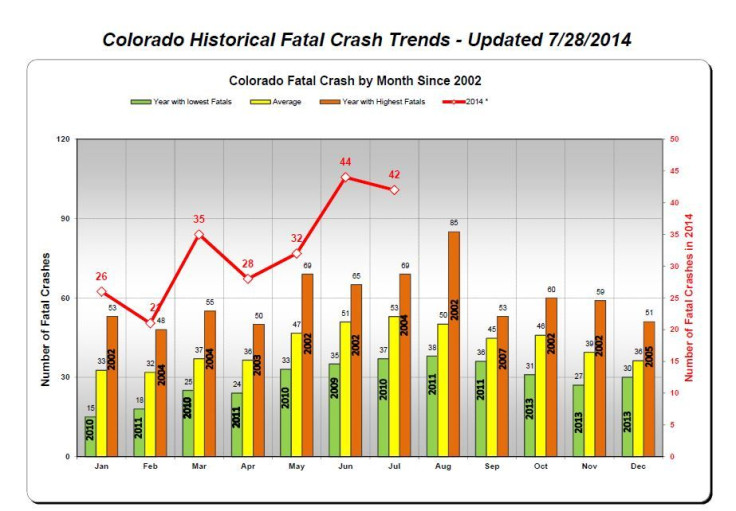Did Marijuana Legalization Lower Car Accident Deaths In Colorado? State Sees Historic Lows

In a study conducted at Columbia University’s Mailman School of Public Health, scientists examined and analyzed toxicological testing data only to discover one out of nine fatally injured drivers tested positive for marijuana in 2010, triple the number in 1999. While some would say this is undeniable proof that pot smoking causes car crashes, others, including Radley Balko, would challenge this inference. In an article appearing The Washington Post, he argues highway fatalities in Colorado are at near-historic lows since marijuana legalization, and for this reason, it cannot be so simply concluded that "high" drivers are more prone to accidents than sober ones.
However, he does not assume Colorado’s record number of accident fatalities proves pot smoking does not cause crashes. Rather, he says, “A post-accident test for marijuana metabolites doesn’t tell us much at all about whether pot contributed to the accident.” The crux of his argument is that some toxicology tests measure only the presence of marijuana metabolites, which can “linger in the body for days after the drug’s effects wear off — sometimes even for weeks,” Balko noted. “Because we all metabolize drugs differently (and at different times and under different conditions), all that a positive test tells us is that the driver has smoked pot at some point in the past few days or weeks.”
Here is a preliminary chart, prepared by Colorado Department of Transportation, showing fatal crashes by month since 2002.

This year’s monthly numbers appear in the red line floating above the bars. As you can see, for the most part, this year’s monthly totals are all below not only the highest months from the past, but also the averages of all the years combined. And in May, this year’s monthly total represented a record low. If you were to compare 2014’s monthly total of fatalities to 2013’s figures alone, five months of this year had fewer fatalities than last year, two months had slightly more fatalities, and one month had an equal number of fatalities.
“Of course, the continuing drop in roadway fatalities, in Colorado and elsewhere, is due to a variety of factors, such as better-built cars and trucks, improved safety features and better road engineering,” Balko wrote. He further suggests that since we are only seven months into 2014, these figures representing road fatalities may change, rising or falling in the next five months. In the end, his argument



























